This is a list of important people in the anti-slavery (abolitionist) movement.
Not all the people necessarily shared the same views on the immediate emancipation of slaves. But, they played differing roles in bringing an end to the practice of slavery. I have listed these people in chronological order.
American abolitionists
 Thomas Jefferson (1743 – 1826) Although a slave owner himself, he sought to outlaw slavery at different stages. In 1784, he proposed federal legislation banning slavery, but it failed to pass by one vote. As President, Jefferson sought to make slavery a crime and in 1807, passed the Act prohibiting the import of slaves.
Thomas Jefferson (1743 – 1826) Although a slave owner himself, he sought to outlaw slavery at different stages. In 1784, he proposed federal legislation banning slavery, but it failed to pass by one vote. As President, Jefferson sought to make slavery a crime and in 1807, passed the Act prohibiting the import of slaves.
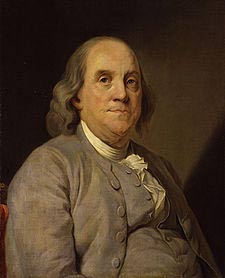 Benjamin Franklin (1706 – 1790) Although Franklin initially owned slaves himself. He became opposed to the institution. In 1785, he became president of an abolitionist group in Pennsylvania, originally formed by the Quakers.
Benjamin Franklin (1706 – 1790) Although Franklin initially owned slaves himself. He became opposed to the institution. In 1785, he became president of an abolitionist group in Pennsylvania, originally formed by the Quakers.
Tom Paine (1737 – 1809) 
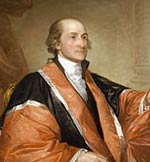 John Jay (1745 – 1829 ) A son of a New York slave owner, Jay sought to abolish slavery in his state of New York and became one of leading advocates of manumission – the process where slaves are given their freedom. Jay also advocated the provision of education for former slaves.
John Jay (1745 – 1829 ) A son of a New York slave owner, Jay sought to abolish slavery in his state of New York and became one of leading advocates of manumission – the process where slaves are given their freedom. Jay also advocated the provision of education for former slaves.


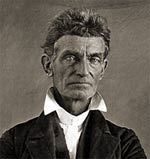 John Brown (1800-1859) – A fervent abolitionist who believed in armed insurrection against the institution of slavery. In 1859, he led an armed uprising in Harpers Ferry, Virginia aiming to free slaves and end the practice. He was executed for his attempted uprising.
John Brown (1800-1859) – A fervent abolitionist who believed in armed insurrection against the institution of slavery. In 1859, he led an armed uprising in Harpers Ferry, Virginia aiming to free slaves and end the practice. He was executed for his attempted uprising.
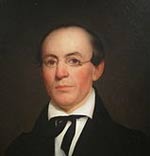
Abraham Lincoln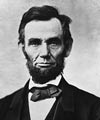 (1809 – 1865) President of US during the American civil war. Lincoln made the famous Emancipation Proclamation (1863) – declaring “that all persons held as slaves” within the rebellious states “are, and henceforward shall be free.” – This proclamation was followed by the 13th Amendment to the US Constitution (1865) outlawing slavery.
(1809 – 1865) President of US during the American civil war. Lincoln made the famous Emancipation Proclamation (1863) – declaring “that all persons held as slaves” within the rebellious states “are, and henceforward shall be free.” – This proclamation was followed by the 13th Amendment to the US Constitution (1865) outlawing slavery.
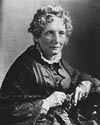 Harriet Beecher Stowe (1811 – 1869) – US Campaigner against slavery. Her influential novel ‘Uncle Tom’s Cabin’ (1852) helped challenge attitudes on slavery within America.
Harriet Beecher Stowe (1811 – 1869) – US Campaigner against slavery. Her influential novel ‘Uncle Tom’s Cabin’ (1852) helped challenge attitudes on slavery within America.
 Elizabeth Cady Stanton (1815 – 1902 ) – Stanton was a vocal critic of slavery, campaigning for NY Anti-slavery society. She also helped the underground railroad, a movement helping black people to escape slavery.
Elizabeth Cady Stanton (1815 – 1902 ) – Stanton was a vocal critic of slavery, campaigning for NY Anti-slavery society. She also helped the underground railroad, a movement helping black people to escape slavery.
Susan B. Anthony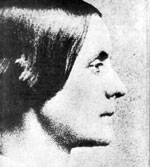 (1820 – 1906) – Susan Anthony was an active member of the American Anti-Slavery Society. She met fierce hostility but continued to press for an amendment to the US Constitution to outlaw slavery. Also, prominent women’s right activist.
(1820 – 1906) – Susan Anthony was an active member of the American Anti-Slavery Society. She met fierce hostility but continued to press for an amendment to the US Constitution to outlaw slavery. Also, prominent women’s right activist.
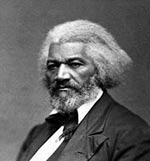 Frederick Douglass (1818 – 1895) A former slave, Douglass became a leading figurehead in the anti-slavery movement. One of the most prominent African American leaders of the Nineteenth Century. His autobiography of life as a slave, and his speeches denouncing slavery – were influential in changing public opinion.
Frederick Douglass (1818 – 1895) A former slave, Douglass became a leading figurehead in the anti-slavery movement. One of the most prominent African American leaders of the Nineteenth Century. His autobiography of life as a slave, and his speeches denouncing slavery – were influential in changing public opinion.

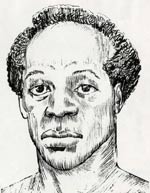 Sam Sharpe led the Christmas Rebellion in Jamaica (1831) – an event that catalysed anti-slavery sentiment. The event was also known as the Jamaican Baptist War. The Jamaican government’s severe reprisals was a factor in the UK (1833) Slavery Abolition Act.
Sam Sharpe led the Christmas Rebellion in Jamaica (1831) – an event that catalysed anti-slavery sentiment. The event was also known as the Jamaican Baptist War. The Jamaican government’s severe reprisals was a factor in the UK (1833) Slavery Abolition Act.
British
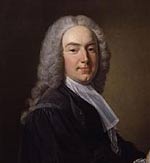 Lord Mansfield (1705 – 1793) Judge whose opinion in Somerset’s Case (1772) set an important precedent that slavery was illegal in England.
Lord Mansfield (1705 – 1793) Judge whose opinion in Somerset’s Case (1772) set an important precedent that slavery was illegal in England.
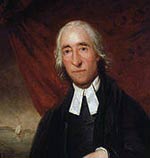 James Ramsay (1733 – 1789) Ramsay was one of the first Anglican vicars to write extensively on the slave trade. His first-hand descriptions of the mistreatment of slaves was very influential in galvanising the anti-slavery movement in England.
James Ramsay (1733 – 1789) Ramsay was one of the first Anglican vicars to write extensively on the slave trade. His first-hand descriptions of the mistreatment of slaves was very influential in galvanising the anti-slavery movement in England.
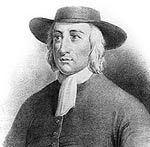 Quakers. Quakers were amongst the first white people to denounce slavery. Many of the early anti-slavery societies in US and UK were created by Quakers.
Quakers. Quakers were amongst the first white people to denounce slavery. Many of the early anti-slavery societies in US and UK were created by Quakers.
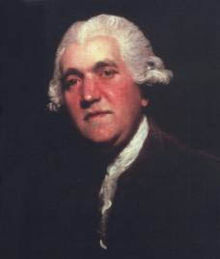 Josiah Wedgwood (1730 – 1795) A prominent anti-slavery campaigner. He is remembered for his medallion “Am I Not a Man And a Brother?” anti-slavery medallion.
Josiah Wedgwood (1730 – 1795) A prominent anti-slavery campaigner. He is remembered for his medallion “Am I Not a Man And a Brother?” anti-slavery medallion.
William Wilberforce (1759 – 1833) – Campaigned against slavery, helping to outlaw slavery in Great Britain. The Slavery Abolition Act 1833, was passed three days after his death.
(1759 – 1833) – Campaigned against slavery, helping to outlaw slavery in Great Britain. The Slavery Abolition Act 1833, was passed three days after his death.
Olaudah Equiano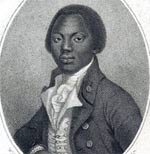 (1745 – 1797) – The first black African slave to write about his experience as a slave. His book ‘The Interesting Narrative of the Life of Olaudah Equiano‘ played a pivotal role in turning public opinion in Britain against slavery.
(1745 – 1797) – The first black African slave to write about his experience as a slave. His book ‘The Interesting Narrative of the Life of Olaudah Equiano‘ played a pivotal role in turning public opinion in Britain against slavery.
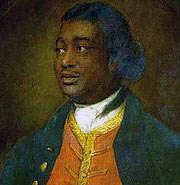 Ignatius Sancho (1729 – 1780) – Former slave, who escaped and gained his freedom. His writings about his experiences provided a vivid first-hand account of the cruelty of slavery and also the humanity and personality of former slaves.
Ignatius Sancho (1729 – 1780) – Former slave, who escaped and gained his freedom. His writings about his experiences provided a vivid first-hand account of the cruelty of slavery and also the humanity and personality of former slaves.
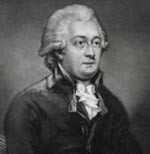 Thomas Clarkson (1760 – 1846) – English abolitionist and leading campaigner against the slave trade. Clarkson (at great personal cost) uncovered as much detail and knowledge about the slave trade as possible. His evidence was important in passing anti-slave bills.
Thomas Clarkson (1760 – 1846) – English abolitionist and leading campaigner against the slave trade. Clarkson (at great personal cost) uncovered as much detail and knowledge about the slave trade as possible. His evidence was important in passing anti-slave bills.

French
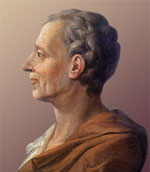 Baron de Montesquieu (1689 – 1755) Montesquieu was a key figure in the Enlightenment, writing on democratic principles. Though his opinions were mixed, in “The Spirit of the Laws”, he states slavery went against the natural order of things. His views influenced both American and European thought.
Baron de Montesquieu (1689 – 1755) Montesquieu was a key figure in the Enlightenment, writing on democratic principles. Though his opinions were mixed, in “The Spirit of the Laws”, he states slavery went against the natural order of things. His views influenced both American and European thought.
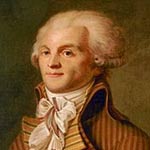 Maximilien Robespierre (1758 – 1794) Robespierre was one of the foremost figures of the French revolution. Robespierre signed the bill, when the New French Republic abolished slavery on 4 February 1794.
Maximilien Robespierre (1758 – 1794) Robespierre was one of the foremost figures of the French revolution. Robespierre signed the bill, when the New French Republic abolished slavery on 4 February 1794.
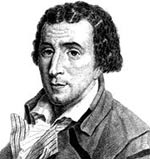 Jacques Pierre Brissot (1754 – 1793) Founded the Society of the Friends of the Blacks (Société des Amis des Noirs) to work for the abolition of slavery.
Jacques Pierre Brissot (1754 – 1793) Founded the Society of the Friends of the Blacks (Société des Amis des Noirs) to work for the abolition of slavery.
Citation: Pettinger, Tejvan. “People in the anti-slavery movement”, Oxford, biographyonline.net Published 1st December 2013. Page last updated 15th February 2018.
The Rise and fall of slavery
The rise and fall of slavery in the New World at Amazon
The Slave Trade
The Slave Trade at Amazon
Related pages
People who fought for human /civil rights


Famous slaves – People who became well-known despite being kept in slavery. Including St Patrick, Spartacus and Nat Turner.


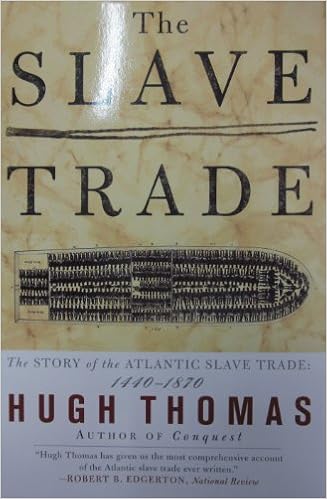
7 Comments
I have been researching the cause(s) that prevented the abolishment of slavery during or just after the Revolutionary War. It seems such a contradiction that after the War, their fellow Americans were left in bondage \
I would like to know as much as possible about White Americans who were against slavery and participated in the underground railroad or other avenues of escape.
Thank you for this website . I am fascinated and sadness and the same time by the history of slavery.
The events during the slavery is something I can’t digest , too painful , knowing that there were people who were opposed to and wanted it to be abolished,gives me hope in humanity .
S
I wish everyone could understand that people are people….there is so much racism in the world and there is no exuse for it….blacks died for whites whites died for blacks and all races have fought for each other… In a world where everyone and everything and every country is at war with each other it is important to realize and revisit history and realize everyone has fought for each other for equality in this life…. Very few people except that anymore.. very sad!!! These people above we’re and are still amazing and powerfully influential and still great history
I was surprised how many people were involved. I am 64 and me and my family never spoke of black or white. I am proud my parents were not prejudiced, regarding skin color. We were raised to treat everyone the same
This is a very good site. Love all the hard work you guys put into it. I’m very proud that I found this and also of you guys making it. Have a Good day!
This is an excellent historical revelation of people who were against slavery in America. However, the list is far incomplete. There were many more influential and notable white people who were openly against slavery in America, their names should be added to this list also. This should be an on-going work. And, perhaps someday there might be a monument built bearing these names, such as the War Memorial Monument of Names in Washington, DC